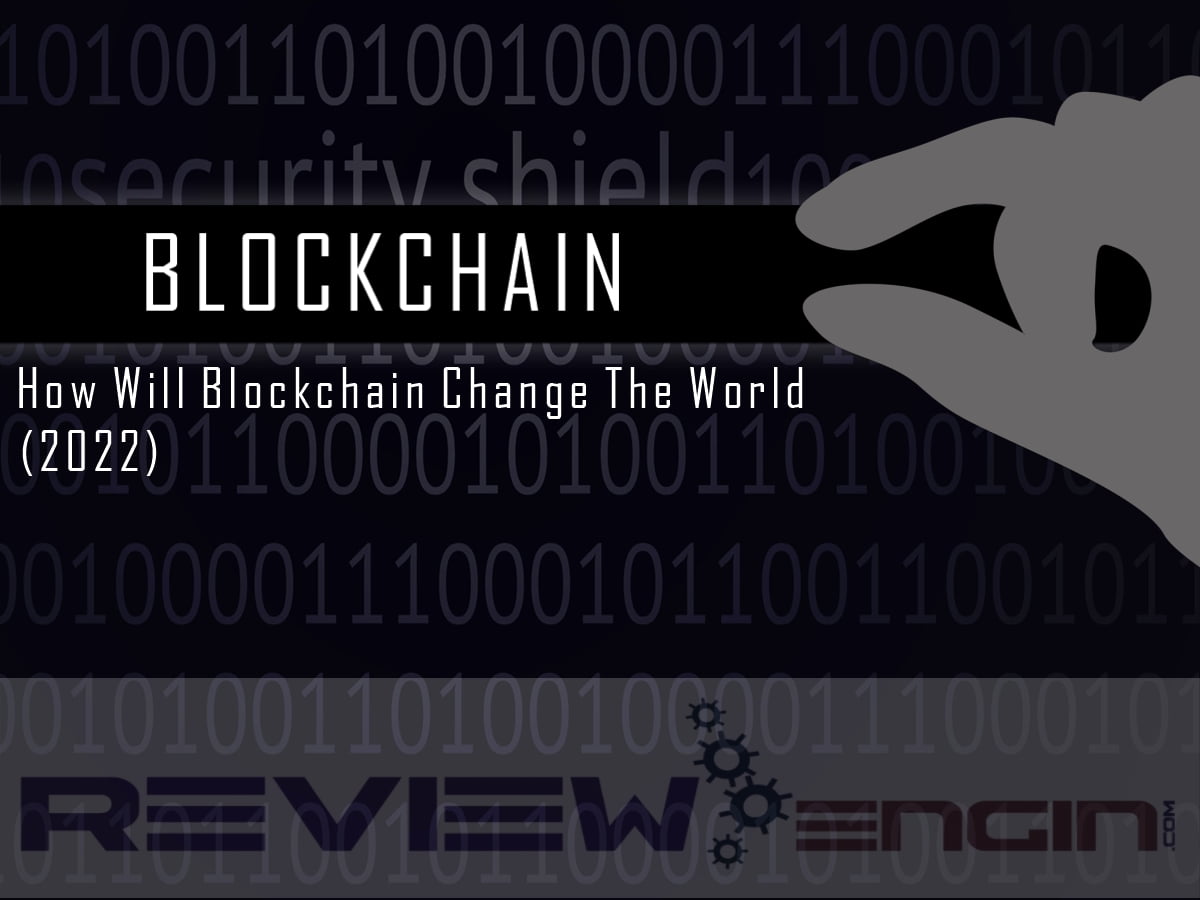Blockchain technology is a decentralized system that allows for information storage and transfer without allowing any party to control it. Blockchain has been compared to the internet regarding the potential impact on society. This is because both have changed how people think about transferring data. The following are ways how Will blockchain changes the world:

1. Electronic Voting
The idea is to use a distributed ledger as an alternative for the election systems to avoid electoral fraud and protect voters’ privacy by providing secure identity management for those who are not yet registered to vote. Blockchain-powered electronic voting offers voter empowerment, security, cost efficiency, and speed. After all, it is still a very new technology, and we can expect it to evolve even further in the coming years.
2. Digital Identity Management
It is well-known that we need to improve identity management across all industries, as we cannot continue exposing our sensitive information at every step of the online process – whenever you shop online, access email or social media accounts, use a mobile app, shop on Amazon or enter a flight reservation. This is where blockchain comes to our rescue, as it has been designed from the ground up with data integrity and identity management in mind. Blockchain-based digital identities can be used for authentication purposes, eliminating the need for password managers and providing an additional layer of security.
3. Government Services
Blockchain technology has enormous implications for governance, from public services to voting systems. There is potential for blockchain to be used in the public sector as a secure and transparent way to record votes and store data such as health records and citizen ID. Public agencies can also benefit from blockchain smart contracts by removing paper-based processes and manual verification, automating bureaucratic tasks, and saving money.
4. Healthcare Services Management & Delivery
Blockchain can address interoperability, single source of truth, trust, and smart contracts making this technology a vital digitization driver for healthcare across payers, providers, and life science companies such as clinical research organizations or digital health companies.
5. Cloud Storage and File Sharing
 Blockchain technology is helping to create a new generation of cloud storage services that offer greater security and reliability than current options, such as Dropbox and Google Drive. Blockchain-based file-sharing services aim to disrupt the traditional centralized architecture by creating an alternative data storage and transfer network.
Blockchain technology is helping to create a new generation of cloud storage services that offer greater security and reliability than current options, such as Dropbox and Google Drive. Blockchain-based file-sharing services aim to disrupt the traditional centralized architecture by creating an alternative data storage and transfer network.
6. Insurance and Financial Services
With billions of connected devices generating masses of data open for processing, blockchain can disrupt traditional insurance services by using smart contracts and peer-to-peer (P2P) systems to offer more personalized products and lower rates based on accurate risk assessment. P2P lending is another area that blockchain is set to transform. Lending services are already decentralized mainly due to the internet. Still, using blockchain technology makes it possible to create a system where lenders and borrowers can deal with each other directly without needing an intermediary.
7. Cryptocurrency Payments
 It has been predicted that cryptocurrencies will become mainstream in the next ten years, with most fintech startups adopting them as their preferred payment method. One company that is already encouraging this trend is NUCO, creating a decentralized super-computer network powered by blockchain technology. Another example is the cryptocurrency Monero, which has increased popularity with online merchants due to its anonymity and privacy features.
It has been predicted that cryptocurrencies will become mainstream in the next ten years, with most fintech startups adopting them as their preferred payment method. One company that is already encouraging this trend is NUCO, creating a decentralized super-computer network powered by blockchain technology. Another example is the cryptocurrency Monero, which has increased popularity with online merchants due to its anonymity and privacy features.
8. Music Streaming
The music streaming sector is one of the ripest for disruption. Many artists were experiencing low revenues from recorded content sales due to the monopoly held by streaming companies such as Spotify and Apple Music. This problem will be tackled with blockchain-based solutions that give power back to the artists using intelligent contracts, P2P file sharing, and cryptocurrency micropayments. An example of such a solution is Mycelia, an ecosystem that uses blockchain technology to create a fair and transparent music industry powered by artists themselves.
9. Energy Sector
Distributed renewable energy marketplaces are set to revolutionize our relationship with electricity, as it becomes possible for individuals to sell their excess solar energy to their neighbors and earn a fair price for it, rather than having to rely on centralized grids that often charge high fees for electricity. Energy-blockchain projects aim to disrupt the traditional utility companies by facilitating the creation of community-based power networks that run independently from central systems.
10. Real Estate
The real estate sector has been slow to move towards a more digital model, with much of the industry still relying on paperwork and manual data transfer. However, blockchain could boost this sector by creating a decentralized database that records all real estate transactions and then securely stores them. Real estate companies such as Atlant have already employed blockchain technology to create digital identities for properties, which form the basis for a new peer-to-peer real estate exchange and investment platform.
Conclusion:
Blockchain is an emerging technology that has the potential to change how we do business. Companies need to be aware of it and understand its implications so they can plan appropriately.


![Commission Hero AI Review 2024 (Exclusive Bonus) & Real Members Area [DEMO] – What’s Inside?](https://www.reviewengin.com/wp-content/uploads/Commission-Hero-AI-555x416.jpg)


